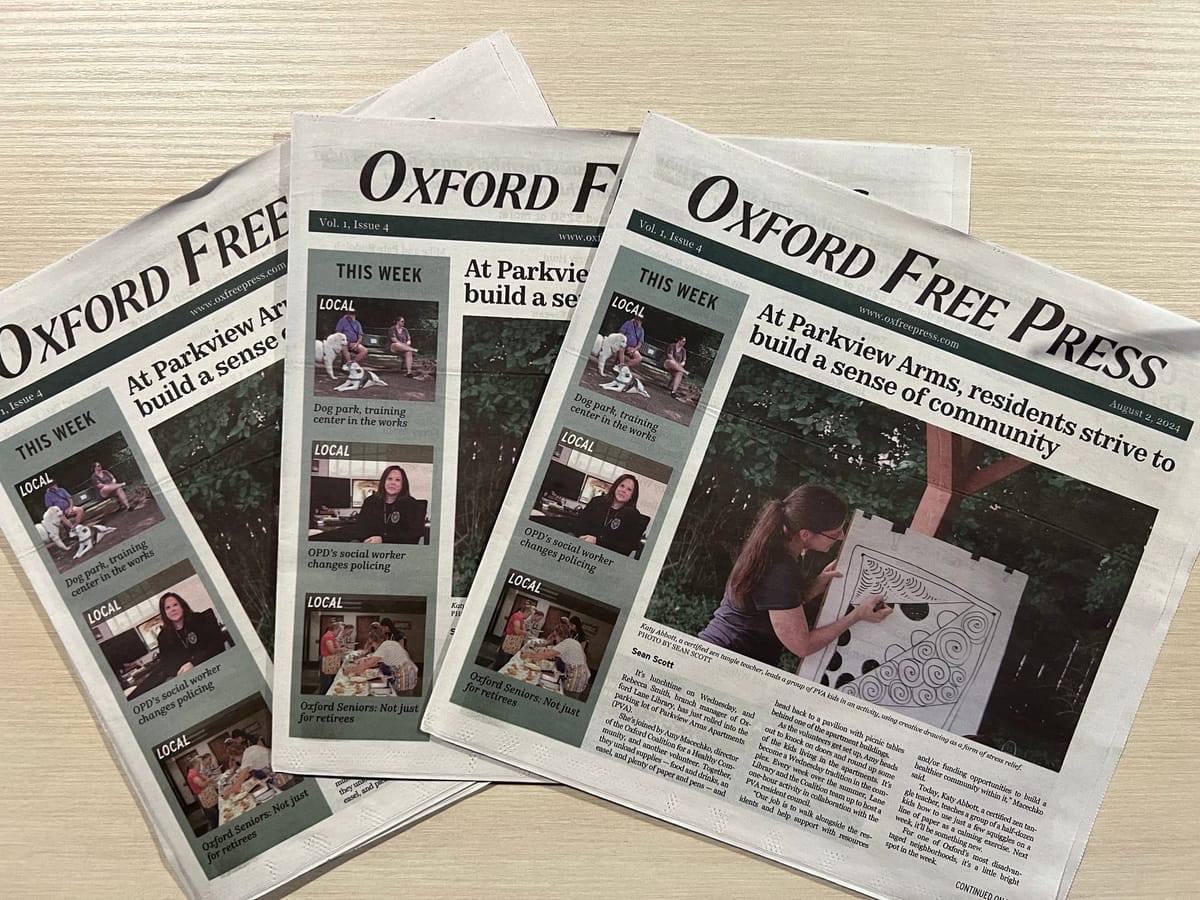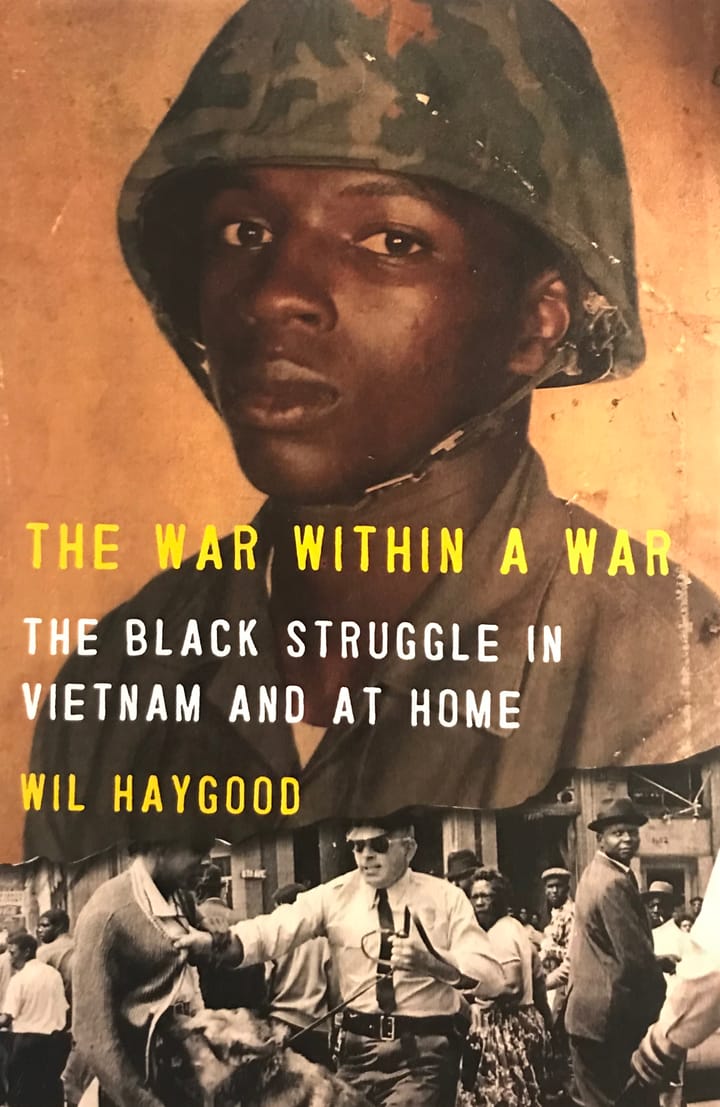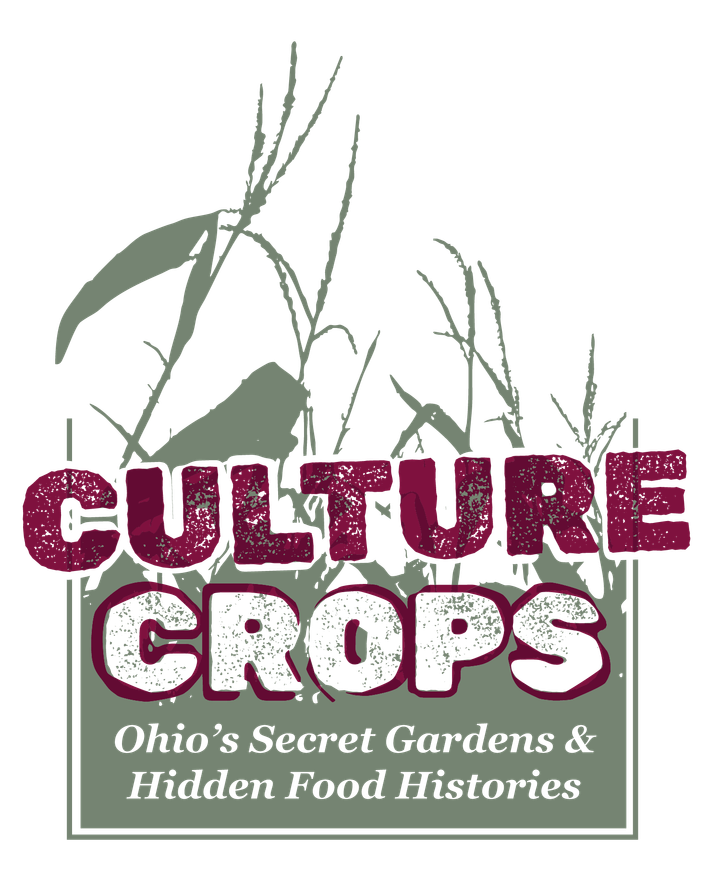Free Press wins one first-place and two second-place awards at Ohio SPJ contest
Founding Editor Sean Scott earned first place in the public service and social issues reporting category, second in best feature and shared a second-place award with past intern Stella Powers for shared coverage of Issue 2.

One year after its founding, the Oxford Free Press won one first-place and two second-place awards at the Ohio’s Best Journalism Contest, sponsored by the Cincinnati, Cleveland and Columbus chapters of the Society of Professional Journalists (SPJ).
Founding Editor Sean Scott earned first place in the public service and social issues reporting category for his series of articles on low-income housing in Oxford. Scott said the reporting for those stories was focused on Parkview Arms Apartments, where tenants felt the property owners were violating their rights.
Scott’s series of stories was praised by the judges for “immersing the reader in the housing issues facing Oxford.” They also appreciated Scott’s efforts to interview the apartment’s residents as well as the management-owners, providing both sides of the story.
For him, public service reporting is the most important type of journalism one could do.
“At its best, journalism should be advocating for marginalized groups and drawing attention to issues that are in the public interest in a way that has a tangible impact on the community,” Scott said. “I don’t know whether my reporting on housing over the past year had that tangible impact, but I do think that it raised awareness for issues in housing, and it got some conversation started and provided a baseline of information for people.”
During his reporting for this story, Scott said that he would visit tenants at their apartments to see their complaints with his own eyes. He also knocked on doors to talk with people both on and off the record to fully understand what their complaints were and how management responded.
In the year that he started and reported for the Free Press, Scott said these face-to-face interviews helped him connect with community members and make his reporting that much more impactful.
“The most important is that you are aware, as you’re reporting, of who it is you’re trying to serve,” Scott said. “It’s easy to write about people, but not for people. So trying to be intentional about not just observing. You are writing to have an impact.”
After four years studying at Miami University and one year living in Oxford, Scott said that the locality of reporting in the city has been a factor in the Free Press’s success.
“I think that’s part of why the Free Press has been successful over the past year,” Scott said. “We immediately became a community resource in a way that launching a paper in a larger market might not have the same opportunity … With the Free Press, most people who are in Oxford either know someone who’s involved in the paper or knows someone who’s been interviewed for the paper or knows someone who’s been impacted by the reporting.”
Scott also took home second place in the organization features category for his story on Kiki Harmon’s barber shop, and he, along with former intern Stella Powers, earned second place in the explanatory journalism category with their coverage of Issue 2, Oxford’s Fire and EMS Levy.
The reporting on the fire levy first started in the early days of the Free Press, with the first front-page story being about the levy going on the ballot. From June until November, when it passed at the ballot, Scott and Powers shared coverage and provided frequent updates.
The most important factor for this reporting was building on each individual story and staying consistent when writing bite-sized stories to provide updates. Once election season began in October, Scott and Powers wrote multiple stories re-explaining what the levy is and what the vote means.
“No one is going to go back and read four or five different 700-word stories,” Scott said. “They want it all right in front of them. So we did that reporting in October so that people would know what was up, and then coming back to the next day after the election to get the results because it’s on people’s minds.”
One challenge to that piece that didn’t get reflected in the story was finding people who opposed the levy. Scott said that finding people to talk on the record against the levy proved to be a struggle.
These three awards join nine other awards that the Free Press won at the Ohio News Media Association (ONMA) 2025 Osman C. Hooper Competition on April 3. Scott said that receiving recognition on the state level is relevant to the mission of the Free Press, and being able to compete with other well-established organizations in Ohio helps establish credibility. However, he emphasized that the most important part of establishing credibility is simply doing good journalism and fair reporting.
“I think that the individual relationships with people and just doing good journalism and getting it in front of people does a lot for our credibility,” Scott said. “But, being able to point to something and say, ‘Look, this is the work that we’re doing, and this is how professional journalists feel about it,’ adds a little bit to that.”




